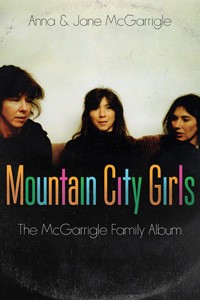Anna and Jane McGarrigle’s memoir overflows with wit
The roots music royals recall their formative years
Mountain City Girls. The McGarrigle Family Album. by Anna & Jane McGarrigle. No Credit.
Share

MOUNTAIN CITY GIRLS
Anna and Jane McGarrigle
Though Kate and Anna McGarrigle never achieved the mainstream popularity of Joni Mitchell or Neil Young, among connoisseurs of superior roots music they are Canadian royalty. Elder sister Jane, while an aperiodic member of the sororal group, was a vital contributor to their success, variously assisting as producer, songwriter and added voice.
The group’s sublime harmonies were curtailed in 2010 with Kate’s death at age 63, from cancer. Two years later, Toronto’s Luminato Festival staged a moving salute, which included a public interview with Anna, conducted by Michael Ondaatje. She shared a delightful string of anecdotes, including a yarn involving her maternal grandfather and a much-travelled pig’s head. Afterwards, Ondaatje’s editor, Louise Dennys, cornered Anna and insisted she compile more family yore. So Mountain City Girls was born, with Jane conscripted as coauthor. The sisters’ individual, though often overlapping, reminiscences are presented in alternating chapters.
Readers anticipating a detailed account of Kate and Anna’s four-decade career arc will have to wait; the narrative ends circa 1975, soon after their debut album was released (and flopped). The focus is on their formative years. Their parents, Gaby and Frank, a remarkably liberal pair who believed children should be free to carve their own paths, met and married in Montreal, where all three girls were born, before relocating to the Laurentian village of Saint-Sauveur soon after.
The siblings, as close in spirit as in age, grew to resemble their freewheeling dad: stubborn, quirky, fearless, endlessly curious and wickedly funny. “He tried his hand at many things,” says Anna, “did well at some of them, and probably had more success at enjoying life than anything else.” The sisters finished school, worked at clerical jobs and eventually married (Kate’s storm-clouded union with rising folk star Loudon Wainwright III lasted less than five years). They didn’t commit to music full-time until they landed a recording contract with Warner Brothers in 1974.
Their lives weren’t markedly different from those of millions of other Baby Boomers, dotted with the same cultural touchstones (Elvis, JFK, Dylan). But Jane and Anna’s recapturing of youthful memories overflows with wit and warmth. As Anna concludes, “It didn’t matter what you did, or how reprehensively you behaved, as long as you got a good song out of it.”